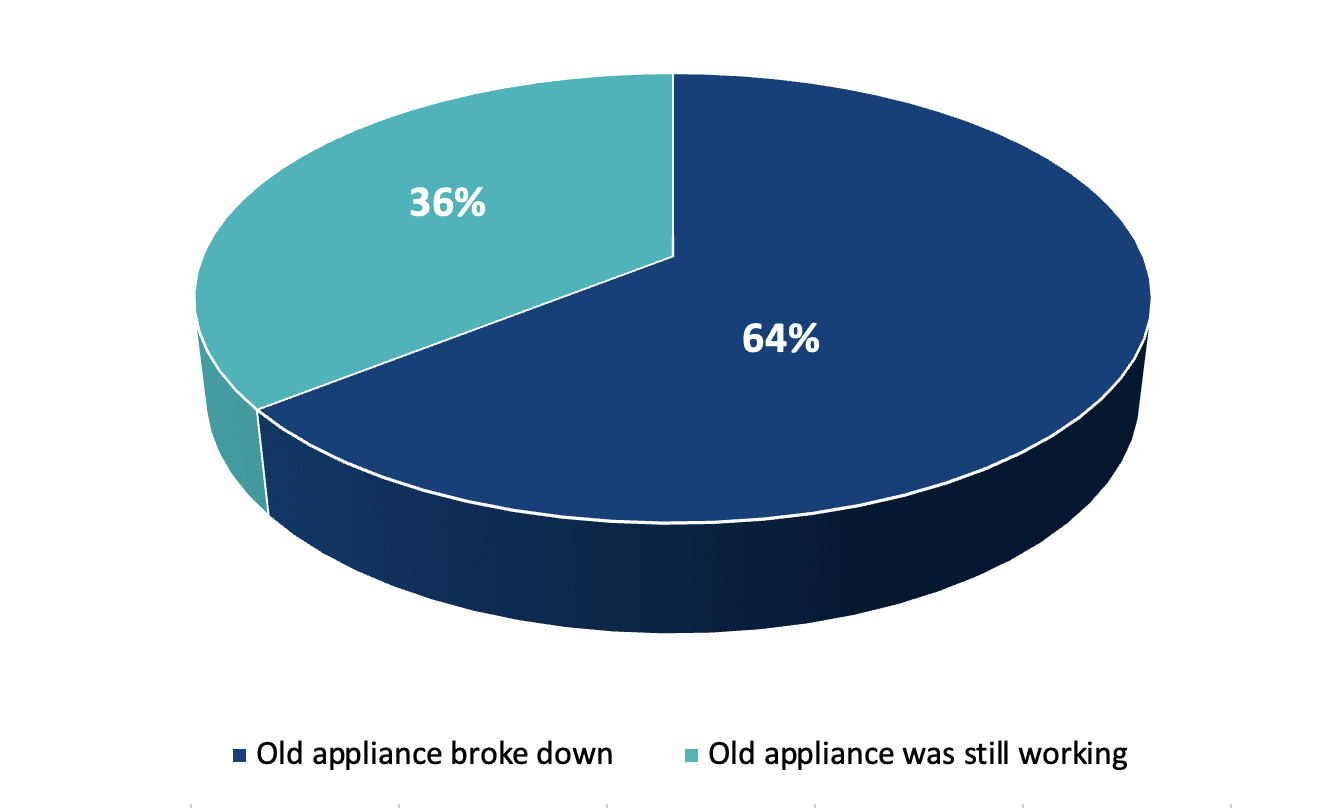Policymakers can provide stronger tools to avoid households becoming locked into new gas boiler systems
We do not get to choose when our boiler breaks down. It could be at the start of the weekend, when a houseful of relatives has just arrived, on the coldest day of the year — or perhaps when all three events converge at once. Whenever it happens, you probably search for emergency telephone numbers to find a heating engineer who is on call and then you hope they answer.
The heating engineer will understand better than anyone the nightmare of being without a boiler. If they can repair it, they will. If you are unlucky though, a repair might not be possible and a new boiler would be required. The quickest and easiest way for the engineer to remedy this urgent situation is often to put in the same system again.
Missed opportunities
When all that matters is to get the heating and hot water going again, homeowners may find the solution — a new boiler — creates a new problem: The new boiler will lock them into a system, for a decade or more, where they have to burn fossil fuels to heat their dwellings. This one-for-one replacement misses a golden opportunity to install a better, future-proof, clean system like a heat pump. Proactive steps to address these missed opportunities would also make an important contribution to meeting Europe’s climate goals, speeding up the replacement of fossil-burning boilers with clean alternatives.
Deliberate choices
According to a consumer survey from the Association of the European Heating Industry, most new heating appliances are bought to replace defective old ones. But ‘defective’ can mean two things as the following figure shows: either it is a faulty device that can nonetheless be repaired or, as in most cases, it has broken down completely, which means it needs immediate replacement.

Repairing a defective boiler will probably buy the homeowner enough time to properly investigate options for replacing it. If the boiler has broken down beyond repair, however, the homeowner is placed under immediate pressure to replace it without delay. This is far from ideal. It takes time to plan for a new heating system and to assess the potential of related upgrades, for example putting in place insulation measures or installing better radiators.
Heating engineers are ideally placed to advise on such matters, but in the winter when they are running from one emergency to the next, they may simply not have the time to provide detailed options. It is far easier just to put in another boiler like the last one. Problem solved? But what if households with ageing boilers already had plans in place for replacing them? A concerted effort by governments to prepare people for the installation of new planet-friendly heating systems could be a major step forward on the path to continental decarbonisation.
Proactive policymaking
There is plenty that policymakers can do to connect with people who own ageing boilers and proactively encourage their replacement with cleaner alternatives. Firstly, they should collect data on the age and state of the heating stock. Identifying which boilers are most likely to need replacing is an essential first step, with several potential sources for information. Mandatory heating system checks would provide all the data needed. In Flanders, Belgium, these take place every two years. Building renovation passports could also provide this information. Registration of a heating system’s age could be made obligatory at certain trigger points, such as point-of-sale. Neighbourhoods or public housing complexes that are likely candidates for boiler replacement could be identified by their construction date.
Educated choice
Secondly, people will be more likely to improve the performance of their building and install a cleaner heating system if they are well informed about the choices they will need to make. Building renovation passports can inform building owners about the steps they need to take to decarbonise their buildings. And local heat planning can also help. People who know that their local area will be disconnected from the gas grid may be more likely to investigate new heating solutions. Domestic energy surveys can also be expanded to include heat pump assessments, which would consider possible locations for a heat pump and hot water cylinder, and identify any changes that would be needed with the emitters and pipework.
Prevention over cure
Thirdly, target system replacement before a repair is needed. Prevention is better than cure. Policies should actively focus on how to replace boilers that are at risk of breaking down, rather than on repairing (or replacing) them when it is too late. Boiler-scrapping schemes and market-based mechanisms, such as energy efficiency obligation schemes or clean heat standards, can be tailored to target older boilers. Meanwhile, lower-income households should be given access to subsidies which cover a large share, if not all of the costs, of installing a clean heating system. In general, all households should have access to finance to make the investment possible. Although heat pumps are cheaper to operate in the long run, the purchase price is still higher than that of a gas boiler and requires dedicated subsidies and interest-free loans.
Emergency fixes
Next, make ’emergency’ fixes to allow future switches. Several temporary solutions are available to keep heat and hot water going when boilers break down. These include offering portable electric heaters and immersion heaters for short-term needs and installing secondhand fossil fuel boilers to cover longer periods between breakdown and a clean heat install.
Finally, support the installer and maintenance industry. Heat pumps have a core role to play in Europe’s future, so the industry needs strong backing from policymakers. It is critical to increase support for skills development and to encourage the creation of innovative business models.
The European Commission is considering a de facto ban on heating appliances running on fossil fuel from 2029 onwards. But before these appliances are phased out from the market, Member States should already be launching interventions targeted at households whose boilers are at most risk of breaking down. The Commission is preparing a heat pump action plan, and it must examine how to support these interventions.
A version of this article originally appeared on Foresight Climate & Energy.


